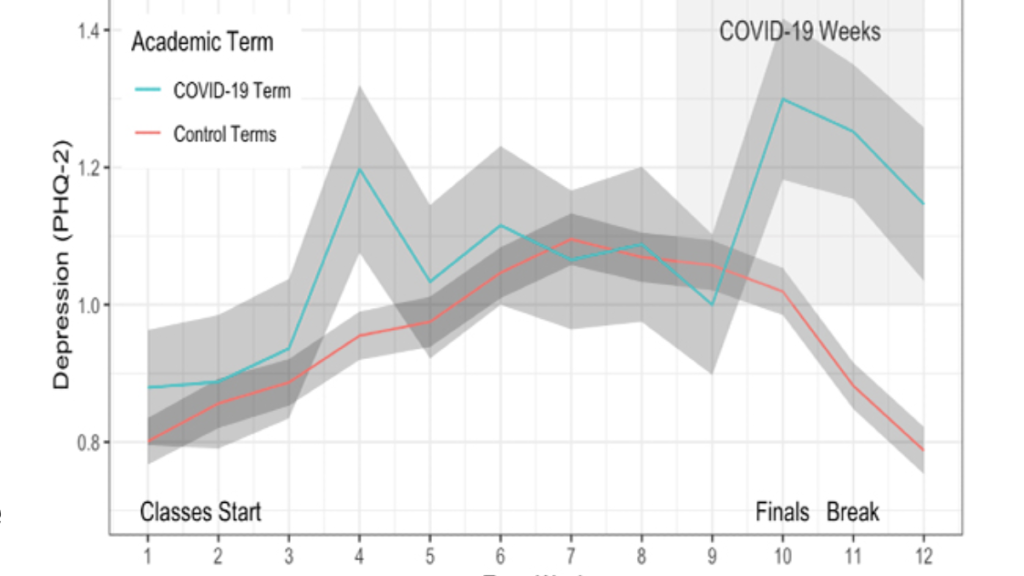The StudentLife study, featured in the Washington Post, used a mix of smartphone sensing and digital questionnaires from more than 200 students participating in a research program that is tracking mental health and wellbeing throughout their four year undergraduate years at Dartmouth College.
Self-reported symptoms of depression and anxiety within the student research group spiked noticeably at the onset of COVID-19. At the time, major policy changes related to COVID-19 were also being put in place, including the request that students leave campus and the switch to remote learning.
"This is the first time we have used sensor data from phones to give us unique behavioral insights into the reaction of students to the onset of the pandemic on a college campus," said Andrew Campbell, the Albert Bradley 1915 Third Century Professor of computer science at Dartmouth and one of the lead researchers of the StudentLife study. "We plan to further analyze how these students adjusted both physically and mentally during remote learning that leads on from this study."
